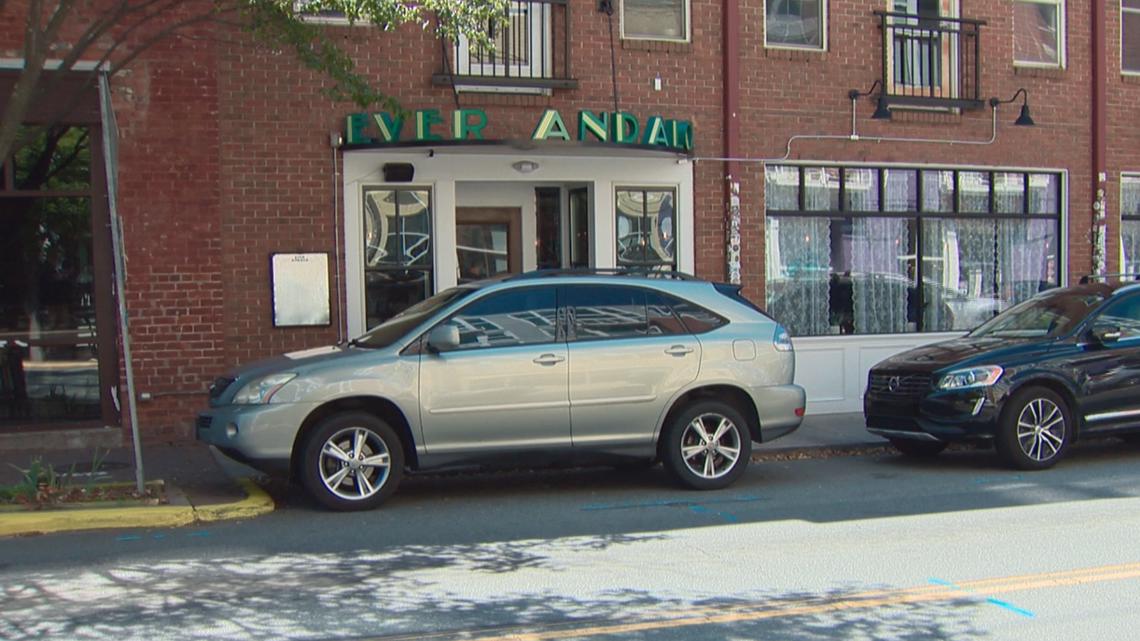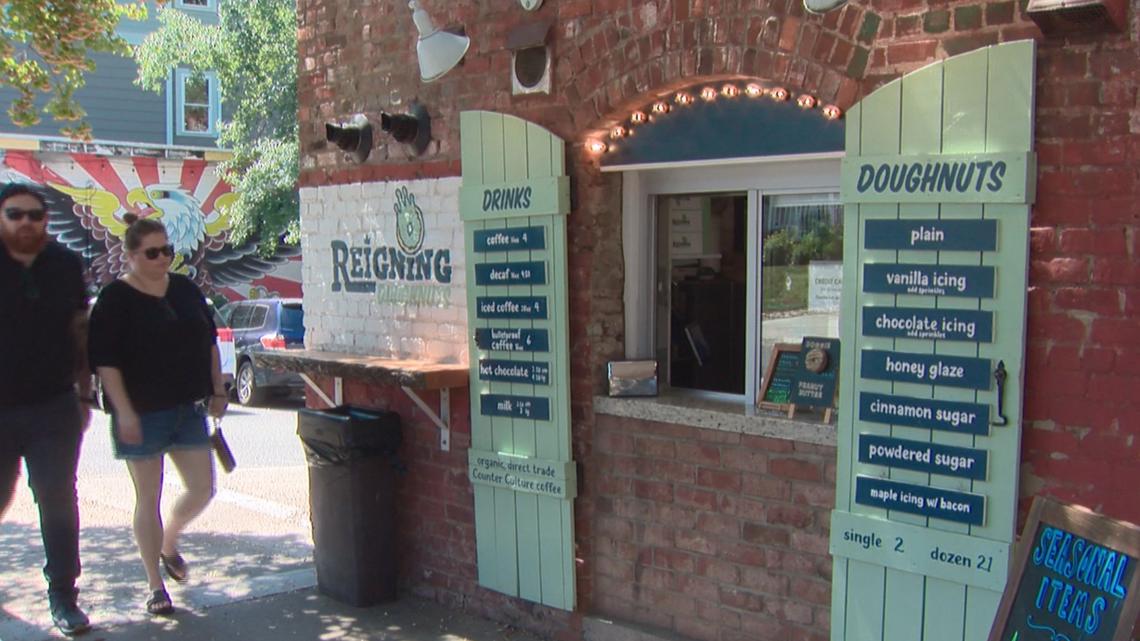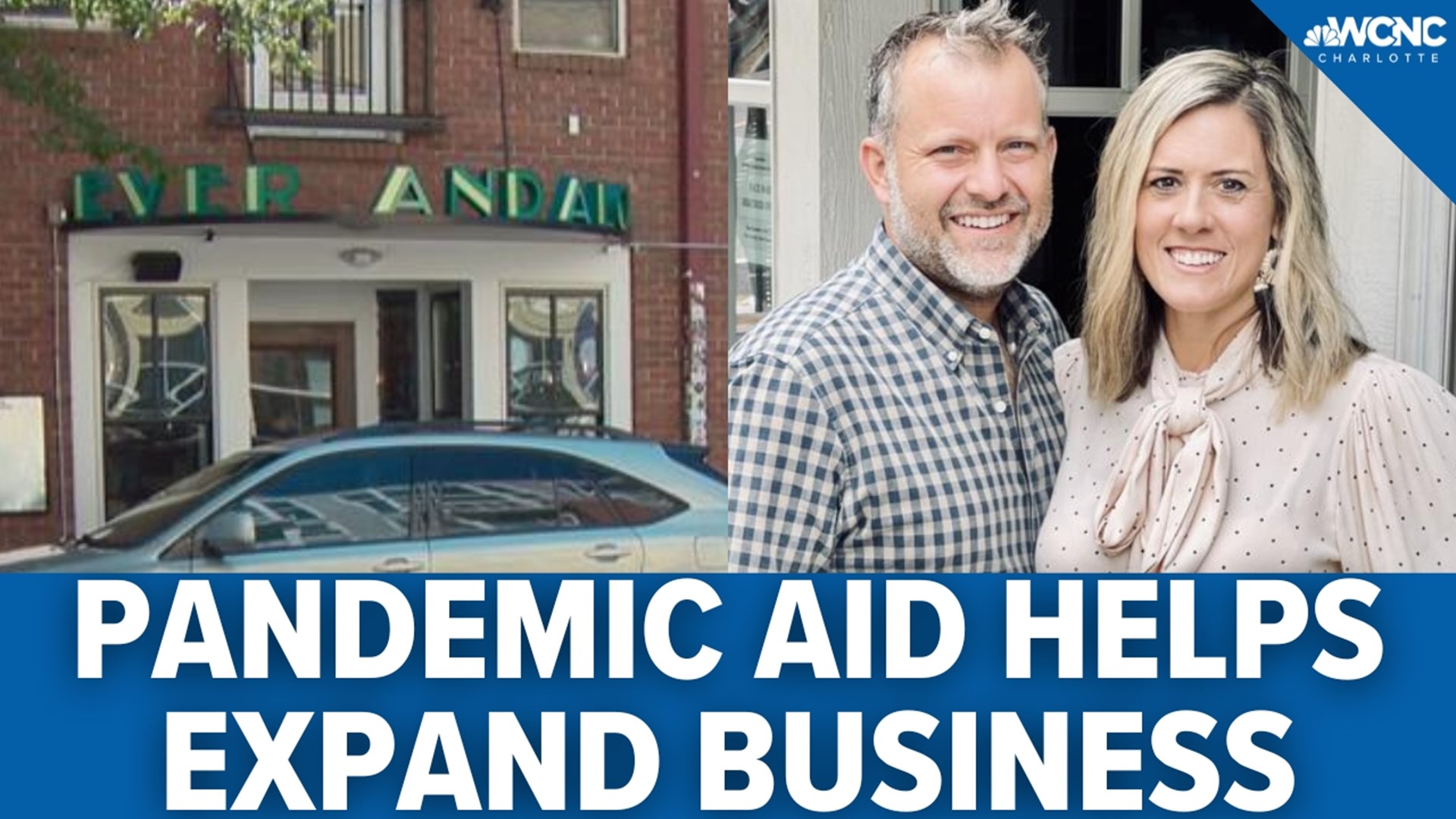CHARLOTTE, N.C. — To a passerby, Crepe Cellar's closed doors at the beginning of 2022 might have looked like the NoDa gastropub had fallen victim to the pandemic, but the neighborhood staple was not a casualty of the moment.
Quite the opposite, actually.
Today, behind the same brick-facade storefront that carried Crepe Cellar's name for 14 years, Ever Andalo blossoms in its place.


"We had a great run," co-owner Jeff Tonidandel said smiling. "I don't think many people closed down and changed profitable restaurants."
That wasn't always the plan, but once Tonidandel and his wife Jamie Brown started spending so much time together at home, they began to reassess the future of 3116 N. Davidson Street.
"All the challenges of the pandemic and all the complications of it, it really made us better," he said. "We just thought we wanted to push ourselves and challenge ourselves."


The couple's new Italian restaurant is the result of a culinary evolution coupled with a journey into the family's past. Tonidandel traced his great grandfather's roots to the tiny Italian city of Andalo.


The personal connection for the new concept is fitting, considering the partnership of Tonidandel-Brown is highlighted at every one of the restaurant group's locations, which now include the nationally-recognized Supperland, Haberdish, Growlers Pour House, Reigning Doughnuts and the soon-to-be newest member of the family, Leluia Hall.


Tonidandel knows they're fortunate. After all, their culinary footprint has grown over the last two years, while other small businesses have closed their doors for good.
"You just didn't know what was going to happen during the pandemic and to be on the other side is wonderful," Tonidandel said.
ALSO ON WCNC CHARLOTTE: You won’t have to pay federal taxes on student debt relief, but states could tax it as income
Tonidandel credits Paycheck Protection Program loans for the company's ability to not only persist but expand. The hundreds of thousands of dollars in loans covered food costs, utilities and rent, and perhaps most importantly, kept employees working.
"We had some funds in the bank and we had some reserves and we felt like we could take the risk," Tonidandel said of Ever Andalo. "If we didn't have our people at the end of this and had to retrain them and get all new people and our culture, that would have crushed us."


The pandemic crushed other small businesses, unable to overcome the empty dining rooms, government mandates and overwhelming uncertainty. Even those that secured PPP loans weren't guaranteed survival.
A WCNC Charlotte analysis found the federal government forgave at least $2 million in pandemic aid for local businesses that eventually closed. Rising rent, hiring struggles and supply chain issues all played a role.
The owners of Carpe Diem on Elizabeth Ave. felt staying open "was going to be a losing batter." Queen City Q's owners in Uptown determined there was "no path for success." The owners of Central Coffee's South End location watched their "jaws hit the floor" when their landlord told them rent would go up nearly 40%.
"Small business owners are pretty resilient here, but it has been difficult and it hasn't just been the pandemic. It's been other things," Accion Opportunity Fund President and COO Michael Rapaport said. "It is heartbreaking when you see, even if the business survives, just the challenges that they face."
For those still hanging on, Rapaport said hundreds of millions of dollars in low-interest loans are available right now. One of the programs is strictly for small businesses in southern states, including North Carolina and South Carolina.
Rapaport's nonprofit is helping administer the Southern Opportunity and Resilience (SOAR) Fund. He said the program has already lent $40 million to small business owners in 15 southern states. The funds are set to expire at the end of 2022.
The program, home to low-interest loans with small fees, is only available to the smallest of businesses impacted by COVID.
"It is one the most rewarding things I've ever done, even though it can be one of the most challenging," Rapaport said of the work that goes into helping small businesses secure the loans.
The Carolinas also received federal approval for a combined $302 million through the State Small Business Credit Initiative.
Community Reinvestment Fund, USA Senior Vice President of Strategy Patrick Davis told WCNC Charlotte a list of financial institutions participating in the North Carolina program is expected to be released in the fall. Meanwhile, he said more than two dozen financial institutions are already approved to disperse funding in South Carolina.


If anyone knows the value of pandemic aid, and that great obstacles bring great rewards, it's Jeff Tonidandel and his wife. They opened Crepe Cellar during the last recession. They've launched two new restaurants during the pandemic and are currently working on their third.
"It was rough, but it's nice to be where we are," he said.
So far, a happily Ever Andalo.
Contact Nate Morabito at nmorabito@wcnc.com and follow him on Facebook, Twitter and Instagram.

